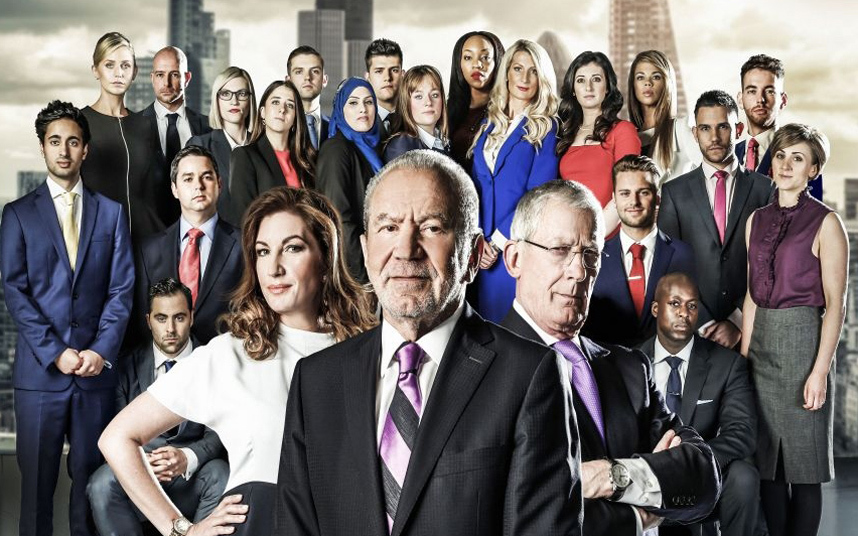JAMES PATRICK CASEY explores the strange new place TV is headed to.
It’s important to stress that a worryingly large part of modern television involves observing a varied group of people in a glass box. Their every move and emotion is edited and reproduced as a series of memorable and hatred-inducing gifs, and we, as observers, squeal with delight as they tear themselves and each other apart. From the human zoo that is Big Brother to the more subtle approaches of The Apprentice and The Great British Bake-Off – which try to hide their hate-mongering behind a veneer of business tasks and baking extravagance – it’s easier than ever to find pricks on TV who we love to hate. It’s difficult not to be cynical when you’re watching The Apprentice’s Stuart Baggs make himself into public enemy number one, but this process of edited exaggeration ultimately, in some weird paradoxical way, humanises everyone on TV. People on reality shows are still people, and now programmes are starting to reflect that depth of character.
You could argue that the entire premise of The Apprentice has devolved to a kind of candidate mockery, with the only legitimate ‘business’ change to be made to the show in recent years being totally ineffectual on the show itself. The winning candidate now enters into a 50/50 business partnership with Lord Sugar, as opposed to triumphantly sharpening his pencils, waiting for the next ‘entrepreneur’ to take over. But the whole ‘business model’ angle only rears its ugly head in the final interview stages; last year’s dark horse Jordan had a business plan that was the entrepreneurial equivalent of a diagram of a stone scrawled on a napkin, which didn’t emerge until the semi-final. This season, an extra four candidates were lobbed into Lord Sugar’s drooling jaws, allowing him to fire about seven hundred and sixty-five people per episode. Last-chance boardroom cat-fighting between the candidates has exponentially increased this series, making us hate everyone even more than we already did.
This contestant loathing has spilled over into other BBC reality shows; in the most recent series, the once-friendly confines of the Bake-Off tent had its Union Jack bunting rocked to its vaguely patriotic core. ‘Bingate’ was born when 69 year old Diana ‘sabotaged’ fellow contestant Iain’s Baked Alaska; he presented the judges with a bin of instead of a dish, resulting in his untimely yet amusing elimination. Before Mary Berry’s doddery charm could diffuse the situation, the entirety of the Internet forgot about ISIS, Syria and the Ebola Crisis, instead dominating twitter with #BringIainBack.
The worst part of ‘Bingate’ is that it was the most entertainment I got out of Bake-Off in the two seasons I’ve watched of it. For all the puns from hosts Mel and Sue and one-liners from Jo Brand on the Bake-Off spin off, An Extra Slice, the defining characteristic of the Bake-Off franchise is its dullness. It’s not a £250,000 investment on the line as there is in The Apprentice, but a chance to spend another week baking improbably extravagant things out of flour and sugar. ‘Bingate’ added hatred and outrage to the (cake) mix, and opened up more of Iain’s character to the viewers – he was an emotional baker, and this was conveyed to us in the most dramatic of circumstances.
Similarly, I’ve been enjoying this season of The Apprentice because of the complicated and long-running relationships developing between the candidates. The early weeks were dominated by meatheads Sarah and Daniel; then came the beard-stroking quandary ‘if a tree falls in the woods, and lands on Steven … is there anyone who likes him enough to feel sorrow?’. Finally we got to watch the three-way hissy fit between James, Daniel and Mark: a trifecta I enjoyed watching self-destruct. Just like Iain’s ‘Bingate’ meltdown, The Apprentice is showing us some depth to the contestants. The viewer isn’t just living for the dramatic thrill of wondering who will get fired/eliminated/evicted from the jungle, but is actually paying attention to character.
It’s easy to hate the people who are paraded on TV for audience amusement because it’s in their job description. A few shows these days are doing a better job of humanising their contestants; this may only be a cheap way of ramping up the (apparently) perilously high stakes, but at least they’re trying. This greater depth of character in shows such as The Apprentice and Bake-Off helps remove the barrier of the caricature, making those on TV seem more like real people – the bakers are more friendly and gently competitive and the entrepreneurs are bigger tossers. I still hate most of the self-important gits wheeling their implausibly small suitcases across my screen on The Apprentice, but I hate them as people, rather than as faceless, tie-wearing images.





